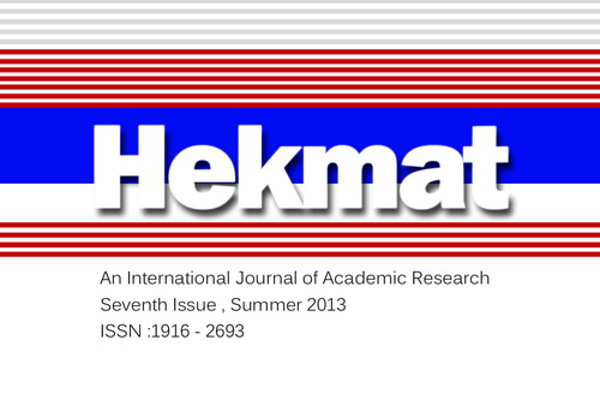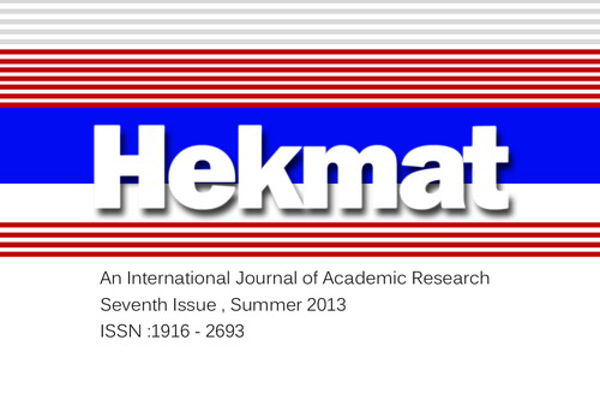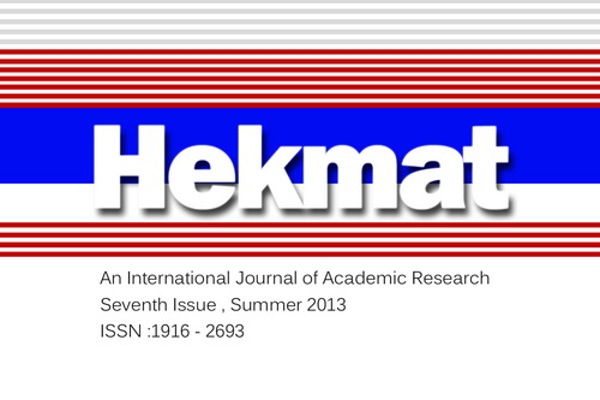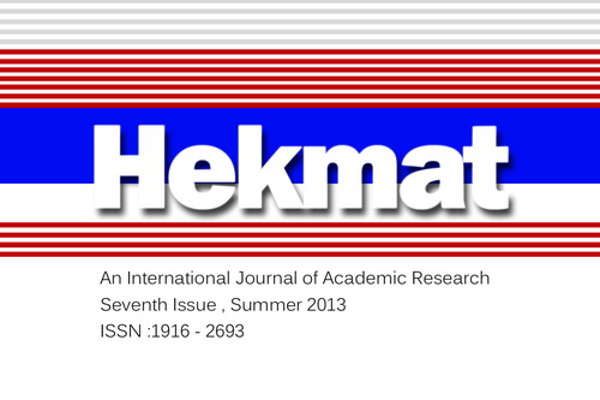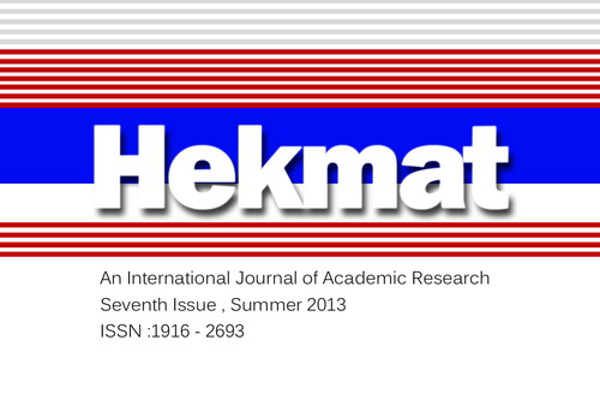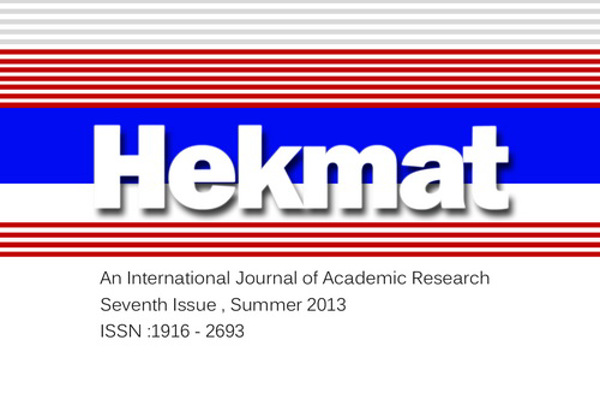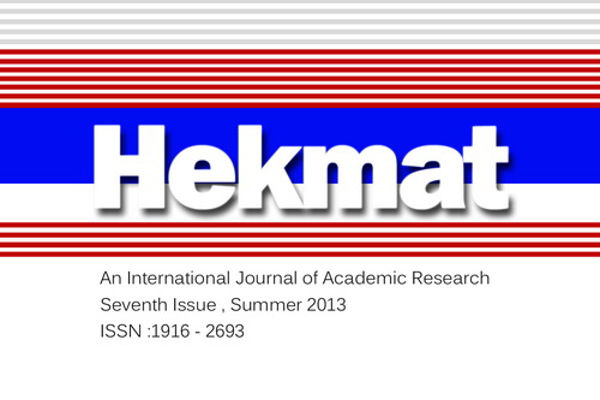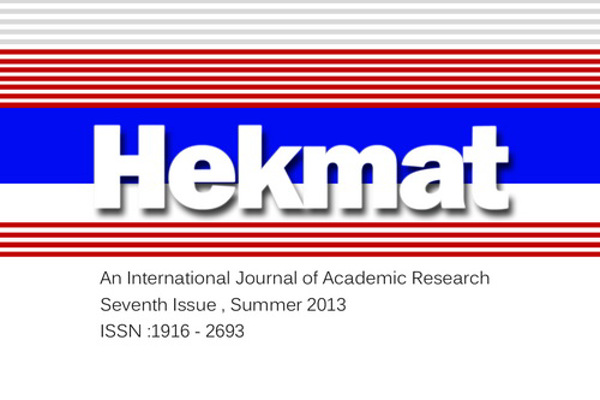Sexual education from an Islamic perspective1 / By: Behruz Rafi’ee
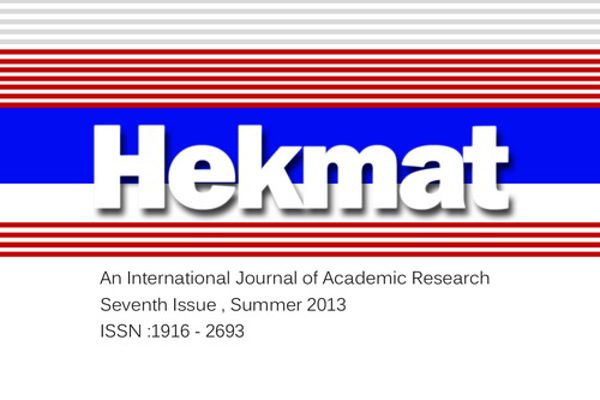
Sexual education from an Islamic perspective[1]
By: Behruz Rafi’ee[2]
The importance of research in sexual education
According to science and religion, child lacks any sexual activity actually except in very exceptional and abnormal cases. Nevertheless, Islam has taken precautions in order to prevent the rise of untimely sexual behavior in children and has introduced measures to treat such untimely behaviors if they are exhibited. The measures introduced by Islam for controlling sexual instinct and correcting sexual behavior are consistent with other aspects of child’s growth. They even positively contribute to child’s growth and development largely.
It is most unfortunate that Muslim parents, teachers, and trainers have virtually ignored sexual education despite its paramount importance and Islam's considerable attention to the administration of the development of child sexual behavior. From an Islamic perspective, parents are responsible for teaching and training their children in this field not only through sending them to education centers but also through their own proper behavior.
In the first place, it is important that Muslim trainers and educators come to realize the vital role sexual behavior plays as a part of the general Islamic educational plan and program. Researchers in the field should try to explain the norms, principles, and characteristic views Islam holds in this regard.
The subject matter of the study
In recent decades, Muslims have been faced with a special challenge coming from abnormal behaviors. These abnormal behaviors have given rise to a huge gulf between the principles and fundamentals they adhere to and the style of life they practically adopt. This gulf is caused either by the cultural backwardness Muslim societies suffer from or the colossal socio-cultural developments following constant great changes on global scale or perhaps both of them. Amidst this confusion, ignorance of parents, trainers, and educators about Islamic norms concerning sexuality only adds fuel to the fire. Muslim trainers are charged with the task to try hard and sincerely to overcome this problem. The first step they should take is to understand the theoretical principles Islam holds about sexuality.
The purpose of the study
This study aims at understanding the Islamic perspective on sexuality. The main purpose is to inform Muslim parents about Islam's view on the subject.
Methodology
In this research, we shall rely on data collected about what takes place in Islamic society on the one hand and on our analysis of Islamic sources including the holy Quran and the tradition of the holy Prophet and Immaculate Imams. This research will indicate that religion is capable of solving the problems present society is facing and of organizing human life in the modern age.
Introducing the problem
Generally speaking, in experimental studies and semi-experimental research, statistical data and methods are helpful to a great extent. But the problem is that obtaining true and comprehensive information via such methods is not easy. When it comes to ethical issues especially sexual behavior, the problem becomes more complicated because people usually try to conceal abnormal sexual behaviors. There is, however, some statistical data available with much difficulty but it is not comprehensive hence unreliable in reflecting the truth. Consequently, researchers cannot help depend on their own observations and collections of information available to the public in the mass media.
Has Islam skipped sexuality?
Although Islam has very much emphasized modesty and other aspects of moral life, it has not neglected the question of sexuality. So many religious texts speaking about the rules and principles of controlling sexual behavior are evidence for this claim. Suppressing sexual faculty is ruled out principally in Islam. So, attention is paid to the question of sexuality sufficiently.
Family and sexual problems
Some people including teenagers and youngsters are ignorant about Islamic principles and rules concerning sexuality. As a result, they are unable to manage their sexual behavior according to these principles. Naturally, they may be dragged to religiously prohibited actions unknowingly. In the first place, it is the responsibility of the parents and educators to inform them. Theorists are also responsible to explain Islamic views about this subject matter.
The factors involved in sexual problems
There of so many different factors involved in misdirected sexual behavior by teenagers and adolescents. Some of them are as follows.
- Parents’ utter ignorance about sexuality which in turn results in children's remaining ignorant of Islamic norms concerning sexuality.
- Wrong sexual behaviors by parents leaving adverse effects on children pushing them towards deviations
- Failure to teach children the etiquette of entering their parents’ bedroom as a result of which they happen to behold their parents’ sexual activity. Watching pornography can also produce the same effect. Children should be taught to ask permission before entering parents’ rooms. What they watch should be controlled in order to prevent various problems such as premature puberty.
The families familiar with the Islamic perspective on sex can implement the regulations Islam prescribes. In this way, they can protect their children from sexual problems in the future and from premature puberty.
The causes of sexual deviations
It goes without saying that sexual deviation does not happen out of the blue. A wide range of factors are responsible for it. They can be summarized in the following way.
1. Hormone Disorders
Hormones produced by different glands inside the body enter blood circulation and thereby control human behavior, emotions, feelings, and body. Human sexual behavior is under direct influence of sexual hormones produced by gonads. Gonads’ activities are influenced by the activities of two glands; thyroid and the thymus. So long as these two are active, sexual activity is virtually nil. As these two glands gradually become smaller and weaker, gonads begin to function. This happens at the start of puberty. For, one of the functions of thyroid and thymus glands is to keep gonads inactive before puberty.
Now, the question arises why some children do have sexual activity despite the fact that thyroid and thymus glands are supposed to prevent it. The reason for this abnormal activity is premature sexual growth which is a rare phenomenon observed in some cases of abnormal development. It is caused by disorder in the function of the two glands as a result of which gonads begin to work too early. The result is the secondary signs of coming of age in childhood.
Premature coming of age may accompany abnormal sexual behavior especially when the parents and teachers fail to notice it and to help the child handle the situation. These abnormal sexual activities are detrimental to the child’s personality and interaction with others.
2. Preparatory factors of sex deviation
There are three factors effective in preparing the ground for sexual deviation. The parents’ ethical and dispositional characteristics affect the child directly. When parents suffer from sexual traits ethically improper, their children are more likely to face sexual problems of some sort. It is for this reason that Islam banns marrying people of bad reputation.
The second factor is the breast milk. The woman who feeds the child with her breast milk passes some of her characteristics to the child. Therefore, it is advised that one performs ablutions before they do so. The holy Prophet of Islam says, “Do not let prostitutes and bad women feed your child at the breast since breast milk leaves its effect on the infant.”[3]
The third factor is the situation in which the mother becomes pregnant. This situation affects the future child’s characteristics. Science has now disclosed the undesirable consequences of pregnancy during period or drunkenness. Observing mandub and makruh plays an important part in the child’s future sexual health. Among his words of advice to Imam Ali (S), the holy Prophet (be peace upon Him) enumerates some of them and says, “Do not have sexual intercourse with your wife when you are aroused by another woman.”[4] This advice tells us that the thought one entertains during sex may affect the future of the child who may be born as the result.
It is worthwhile to mention here that preparatory factors increase the sensibility of a person to natural factors. Natural factors affect sensitive people more than the non-sensitive. When family and social environment is pure and healthy, natural factors may fail to actually affect. But, when there are many sexual stimuli at work in the environment, the natural factors can more easily lead to sexual abnormalities.
Environmental factors
There are numerous factors conducive to sexual deviations. It is difficult to enumerate them all. The majority of psychological investigations and sociological studies conducted in this field tell us that unhealthy environment and wrong pedagogical methods are two common factors conducive to sexual deviations. We may consider these two factors as two main categories under which different elements can be classified.
1. Wrong sex education
The majority of experts in humanities believe that rank educational methods constitute the main factor in abnormal behavior in any respects. Improper methods of social education may cause improper personal traits which, in turn, prepare the ground for abnormal behavior.
Talk about social environment includes family circumstances as well as social institutions that together form patterns of behavior children adapt. The most fatal mistake in sexual education is to conceal sexual issues from 7-to-14-year-old children who need be sexually educated. Islamic precepts introduce a pedagogical model that emphasizes on educating children in relation to sex far before they come of age in order to enable them to encounter the changes they undergo during puberty and to meet their future condition confidently.
2. Common room and common bed
In the poorer classes of society, children's room is not usually separated from the parents’. Also, boys and girls usually sleep in the same room. As a result, sometimes children come to know about their parents’ sex. Children may just imitate their parents’ behavior without any pleasure. This can be very harmful to their future mature life.
3. Imitation of sex behavior by momayez[5] (discerning) children
Different sayings of the Immaculate Imams and the holy Prophet (be peace upon Them) prohibit having sex where and when children can notice.
4. children's questions about sex
Sometimes, children ask questions about how they came into this world. These questions are, sometimes, just ignored. Sometimes, people react to these questions violently. Islam does not endorse this type of reaction. The correct answers should be given to these questions in appropriate ways. Otherwise, children keep questioning and look for other ways to answer them. These ways may be detrimental to their healthy growth.
5. Nakedness
Nakedness whether in public or at home can have adverse effects on children. Child should not be treated as a toy is. It is wrong to think that little children do not understand because they do not react. Therefore, when women appear before them naked, they arouse something in them unwillingly. Too early arousal has consequences.
6. Kissing child’s lips
it's a habit in some families to kiss the lips of little boys and girls who are enough grown up to discern bad from good in order to show affection or gratitude. This habit is not advisable because it may cause sexual arousal of the children.
7. The mass media
Failure of the family to control their children watching TV or using other mass media is also responsible for the negative impact the unhealthy contents on children’s future sexual behavior.
8. Evil company
Teenagers are usually not experienced enough in choosing their friends. Therefore, they may make friends with immoral people. This may mark the start of deviation in the future sexual behavior.
9. Poverty
As a result of poverty, sometimes, families fail to stand up to their responsibility towards raising their children without being ignorant about pedagogic methods and principles necessarily. For example, due to poverty, some people cannot allocate a separate room to their children. They may not be able to buy suitable books, magazines, and other materials for their children. Sometimes, they do not even have a TV. So, children go to the neighbor’s house to watch TV in which case parents cannot exercise any control.
10. The climate effect
There is evidence showing that climate has a direct role in the growth of sexual behavior in children. Some experts believe that, in tropical areas, the rate of disorder in woman's menstruation is higher. Girls come of age earlier and faster in warm climate than in cold regions. Boys come of age faster in these regions, too. So, parents should pay attention to this fact. They should take precocious measures and plan for the sexual education of their children with regard to the area and climate they live in.
Some issues about sex from Islamic and non-Islamic perspectives
In the West, experts in sexuality have discovered some important facts which have been known to Islam for centuries. Although there are incompatibilities between the two perspectives on several issues, there are commonalities as well. We shall mention a few here:
1. The importance of sex education
Modern scientists approve Islam's view about the necessity of sexual education for children before they come of age. They concur that sex education must begin from the second phase of childhood so that the child becomes prepared to face the physical and mental changes during puberty.
In Islamic Model of training, the parents are charged with the religious responsibility to teach their children the religious norms and obligations as soon as they grow enough to discern good from evil. The content, purposes, methods, and the duration of education vary from place to place and from culture to culture. In general, the main purpose of education from the Islamic perspective is to empower the trainee to move towards sublime ethical status and to experience proximity to God and to help them overcome difficulties they face during their growth.
2. Childhood; inactivity of sexual instinct
Modern experts disagree about whether or not the sexual instinct is inactive during childhood. Freud, for example, believes that children do have sexual sense. On the contrary, many other experts think that since the genital organs of human beings are not sufficiently developed in childhood, children naturally lack any sexual sense before puberty.
From the Islamic point of view, children do not have sexual behavior in childhood; they are subject to certain norms and regulations though. Among these regulations are:
- measures concerning exceptional cases and abnormal or immature puberty;
- measures concerning the likelihood of children's imitating adults behavior as a prelude to the emergence of premature puberty including childish sexual behavior;
- measures concerning the parents’ precaution in their own sexual behavior in order to protect their children's futures chastity and purity;
- measures concerning the treatment of the exceptional cases of sexual deviations in children, adolescents, youngsters, and adults stemming from improper pedagogic methods or utter overlooking of child sex education;
- measures aiming at preventing adults from behaviors detrimental to healthy growth of children;
- free and open dialogue about sex in order to disclose probable problems that children may encounter in the future. Some experts suggest that parents should appear naked before the children every now and then in order to make their children familiar with human body and its features. Of course, some other experts disagree with them on this.
From the Islamic point of view, it is important that children come to know about their body and its features. But it should be done in a decent way. In conversation with children about sex, metaphors and indirect speech must be employed in order to safeguard the bounties of modesty. In the holy Quran, we see that talk about sex is comprehensive and informative but indirect.
Nakedness and shyness
Some scientists emphasize that children must be made familiar with modesty and chastity. Some others disagree. For example, Bertrand Russell believes that children must have the opportunity to see their parents and siblings naked. This is an extreme position contrary to the view expressed above. Islamic perspective is closer to the former view emphasizing the necessity to discriminate between innocent children who are not yet capable of discerning good from evil and those who are grown-up enough. Appearing naked is only permitted for the former.
Separating children's beds
A number of psychologists agree with the Islamic view that children’s room should be different from their parents’, their beds must be separated from one another because children who sleep on the same bed together may happen to have physical contacts which, in turn, may wind up in undesirable sex contact. From the age 5, the room boys sleep in should be different from that of the girls. This is to prevent sex deviations from childhood.
Asking permission
Centuries ago, Islam has prescribed that children must be taught to ask permission before entering parent’s room. The secret behind this precept is to prevent children encounter with their parent’s sex because of the ensuing repercussions.
Timely education and preparation
Islamic view about the necessity of educating children about what is likely to happen during the puberty before they come of age is supported by a number of psychologists believing that before children come of age, they should be papered to face the important changes they are about to experience. Islam warns against overlooking this education. It is the religious obligation of the parents to teach their children about their religious responsibilities from the moment they come of age. For example, they should be taught how to observe the regulations about watching other people, facing wet dreams or periods, how they should perform ablutions, how they should pray , how they should touch the Quran etc. Fathers should undertake to educate boys and mothers should educate girls.
Sex education for Muslim children
From the Islamic perspective, sex education is a part of general education children need. Islam pays equal attention to all aspects of personality development including rational, spiritual, emotional, social, and sexual. The combination of all these aspects is required for the growth of children into human beings of Islamic standard.
The notion of sexual education
Sexual education, in Islamic view, means informing the person of religious norms concerning sexuality. The accordance with these norms enables a person to pursue the path of piety and to handle sexual drive rationally and lawfully. In the process of Islamic sexual education, the trainers teach the trainees both theoretically and practically. In the theoretical part, sexual concepts and religious norms are explained. In practical education, the trainees are taught how to perform ablutions for jinabah[6], how to perform istibraa[7], and how to acquire taharat[8]. Educators should separate the rooms children sleep in from a certain age. They should avoid any behavior with sexual intent that may harm the natural growth of moral and sexual personality of the child, and prevent children from any behaviors that may end up in their sexual stimulation.
The general Islamic precept concerning the collective responsibility of all Muslims demands that all individuals and institutions including family, school, the mass media, society etc. cooperate for raising the new generation according to Islamic models that guarantee their chastity, piety, and immunity to sexual deviations.
Characteristic features of Islamic sex education
In general, Islamic education stands out for its specific characteristic features which can be considered as the characteristic features of Islamic sex education, too. But there are particular characteristic features that sex education prescribed by Islam enjoys. We shall mention a few here.
1. Divine tinge
From an Islamic perspective, sex education is a religious task parents and trainers are charged with. The efforts by teachers to train children are considered as the religious service for which the trainers and the trainees are all rewarded by God.
2. Humane tinge
Islamic model of education emphasizes on human dignity, honor, and value as the main focus. So, people are not allowed to sacrifice their dignity and the altar of lust. No one is permitted to exchange his humanity for desires and pleasures.
3. Continuity
Sexual education should be a continuous process starting from childhood and continuing to the end of one's life. Family starts this education; school continues it, and the mass media should fortify it. Without persistence, sexual education would not bear fruits.
4. Realistic approach
Islamic approach to sex education is realistic. Islam acknowledges the important role sex as a natural instinct plays in the survival of human species. Therefore, it neither neglects it nor tries to distort it nor invites to its suppression. There is no illusion about sex in Islam. There is no negative attitude toward sex either.
5. Gradual approach
Islamic model of education attaches considerable importance to gradual approach to education. In sex education, it is important to pay attention to the stages of the trainees’ mental and physical growth. It is also important to bear in mind the differences between girls and boys in these stages. Girls come of age faster than boys do. Therefore, the time for sex education is less in girls than in boys. The content of education must fit the stage of mental growth of the trainee.
The stages of sexual growth
Islam divides sex education into three parts proportionate to the three epochs of a person’s life. In the first epoch, a child is occupied by playing and has no sexual behavior or sense of sex. This period covers seven years. Rarely can some sort of sexual behavior be observed in children over the age four. But such behaviors are no more than imitating the behavior of adults by way of playing. Children have no sense of sex at that age. So, their seemingly sex activities are not in fact sexual. The second epoch starts at the age seven and lasts for eight years. It ends at the moment the child comes of age. In this epoch the child is ready to receive education. One can teach them the religious obligations they are going to be charged with when coming of age. Islam very much emphasizes education in this period for the personality begins to form then and the future moral life of the child is founded. We can sum up the reasons why this epoch is so vital as follows. It is in this period that the person reaches the stage of mental growth. The child grows fast physically, emotionally, socially, ethically, and religiously in this period and becomes ready for learning the religious ideas and precepts. This epoch is the most suitable time for sex education. Children must be taught Islamic etiquettes both sexual and general in this period. To educate the child at this stage and to persuade them to adopt Islamic etiquette and ethics, incentives and rewards are required.
Islamic training and correcting sex behavior
Islamic model of training includes precise programs and plans for controlling sexual desire. Since sexual faculty as an instinctive drive affects human religious personality, it is very important to control it. For, only through this control human beings can safeguard their chastity and piety.
More emphasis is laid on correcting the sexual behavior of adults because their behavior influences all members of the family and maybe imitated by children thereby affecting the process of the formation of their sex personality. Correction of sexual behavior includes a set of programs, plans, and regulations preventing and treating sexual problems. Through these programs, the trainees’ sexual behavior can be changed for the better.
Sex correction as a religious service
Through their activities aimed at sexual training, the trainers try to protect the Muslim person’s personality, bringing them to the stage of mental behavioral equilibrium, and making them familiar with the prohibited and the permitted in regard to sexuality. Therefore, the activity is considered as a religious service. When Muslim trainers stand up to this responsibility of theirs, they would be rewarded. If they fail, they should expect divine punishment. Trainers are required to work on sex correction for several reasons. The first reason is that parents are usually ignorant about Islamic regulations and rules concerning sex education. The second reason is that some of sexual behaviors by children and adolescents who are going to be future parents are abnormal and possibly detrimental to future generations. These abnormal behaviors should be treated in order to prepare the ground for the development of moral traits and habits.
Islam helps parents in their endeavor to sexually train children and adolescents in two ways; altering and correcting their attitude to sex and adding a religious tinge to their sexual activity.
Programs for correcting sex behavior
In order to correct sexual behavior, two different methods may be adopted; genetic-based method and environment-based method. The first method can be implemented in the following ways.
1. Selecting good spouse
Because of the important role marriage plays in the formation of family and the development of the personality of the new generation, Islam calls to paying attention when selecting good wife or husband. Parents’ mental, physical, and emotional situations directly affect those of the children. Therefore, Islam warns against any haste when selecting a girl for wife or a boy for husband. The parties to marriage should take their time to investigate, evaluate, and get to know each other well before marriage and should take no chances lest they regret their choice later.
2. Etiquette of intercourse
In order to preserve the physical, mental, and spiritual health of the children who are the fruit of marriage, Islam prescribes a certain set of rules and norms for intercourse that guarantee the spiritual, mental, and physical health of the parents too.
3. Breast-feeding
As was mentioned earlier, the milk an infant is nourished with plays a role of paramount importance in its growth. Some of the mother’s personal characteristics are passed to the infant via breast-feeding. Also, some of the effects of the food the mother uses are passed to the infant she breast-feeds.
The second method
The second method concentrates on reforming and refining the environment. Islam sets a set of rules and regulations for reforming the environment of life. It is good to raise some introductory point here. These rules and regulations address the latter part of childhood and the first part of adolescence indicating how much importance Islam attaches to sexual training. These rules play a dual role; they are both preventive and medicinal. So, these rules can be applied by trainers in order to prevent sexual problems in children and adolescents and also in order to treat youngsters with sexual abnormalities. It is noteworthy here that these rules can be beneficial only when family and society try to implement them. If some social institutions fail to remain committed to them, then, their utility would be questionable. To implement these rules and regulations properly, it is required that the differences between individuals pertinent to the process of education, particularly, the differences between the two sexes be recognized.
The preventive practical rules concerning correction of sexual behavior through reforming and defining the environment are as follows.
- Teaching religious norms to children as soon as they grow old enough to discern good from bad
- asking permission for entering the parents’ bedroom
- observing rules of clothing
- hiding sexual activities particularly intercourse from children
- separating the beds and rooms where children of different sex sleep
- providing proper house
- Keeping children away from any sexual stimulators
- Paying enough attention to premature puberty
- Teaching children how to spend their time. This is important for the following reasons.
- a) To keep the child away from sexual stimuli
- b) To help the child grow physically strong and learn the necessary skills such as swimming
- c) Getting the child adapted to study in order to develop thinking skills
- d) attending to recreation
- e) developing social skills and the ability to make friends
- f) teaching the child how to benefit from time and opportunities to develop their potentials
10.making the child acquainted with what is religiously prohibited or permitted
11.marriage at the first opportunity
Principals of sex education for adults
Islamic system of education does not neglect Muslim young boys and girls. It rather guides them how to observe their religious obligations especially in regard to sex. If parents and trainers prepare the youngsters for encountering puberty, they will safely pass that turning point with all its difficulties and delights. But if they are not prepared in advance, then they will face numerous complications spiritual, mental, and emotional. They may fail to stand up to their tasks. Unless they receive assistance by trainers and teachers, they will drown under ever deteriorating problems.
Emotional well-being and sexual self-control
The emergence of sexual faculty is a vital turning point in human life preparing the person for undertaking new responsibilities. Islam recognizes this faculty and assumes a positive attitude towards it. Islam introduces a set of norms that guarantee proper utilization of this faculty and safeguard the emotional well-being of the person at the same time. The main purpose Islam seeks in these norms is to meet the demands of sexual faculty in the best possible way. Therefore, any Muslim who adopts Islamic model of sexual behavior can respond to this natural need and retain his emotional well-being. From the Islamic point of view, marriage is the best method. Through marriage one can assume control over sexual faculty.
There are other natural instinctive needs human beings develop throughout their life which can be met through marriage because one important factor in their emergence is sexual instinct. The wish to have family and children, to love others and to be loved by others are among these instinctive natural human needs. In order for the marriage to safeguard the emotional well-being of a couple, certain conditions must be met. The most important condition is that the couple should learn the rules of proper relationship. They should be familiar with each other's psychological status and emotional characteristics. They should build the family on the basis of Islamic morality. They should take care of one another and try to do what they are obliged to do in relation to each other.
Under certain circumstances, however, it is not possible for a person to get into the marriage contract. In these situations, Islam invites people to chastity and self-restraint. People should postpone their response to their sexual needs to future. To empower people to safeguard piety and chastity, Islam orders the trainers and parents to educate children in the field of sexuality so that the child's personality becomes capable of resisting sexual drive when it emerges.
The importance of sex education and awareness for adolescents
In spite of the fact that marriage is generally useful in reducing emotional tensions, in some cases, marriage partners fail to discharge their responsibilities. The result is maladjustment. Then, they fail to satisfy each other sexually. This marks the start of problems. In order to prevent such problems in matrimonial life, Islam advises adolescents to gather necessary information about sexuality before attempt at marriage. Muslim parents and trainers should teach their children properly about sexual issues, etiquettes, and morality before they get mature enough to form their own family.
Etiquette of sexual relationship
In Islamic Sharia, there are rules and etiquettes aiming to fortify proper matrimonial relationship and to strengthen family ties. Before explaining these rules, it is necessary to mention some points.
- Family ties remain secure and healthy provided that proper sexual relationship exists between the marriage partners and all the rights anyone of them enjoys are respected. The norms set by Islam for family relation implies these rights.
- The regulations set by Islam for management of matrimonial relationship do not address their relationship within family alone but include man-woman relationship in different social environments. Commitment to these rules and following these regulations are necessary for the well-being of the family and society.
Matrimonial rules set by Islam or manifold. We will mention only some of them here.
- Neither of the marriage partners is permitted religiously to evade responding to the sexual needs of their mate unless under certain circumstances when it is religiously forbidden to have intercourse.
- Married couples should do whatever necessary as mental and emotional preparation for sexual activity. This preparation is more important for women and they take more time to get prepared compared to men. Husbands are charged with certain tasks to sexually excite their wives enabling them to experience orgasm.
- Sexual intercourse must be hidden from Public.
- Married couples should not look at sexual intercourse only as sexual activity. Rather, they should add spiritual tinge into it; they should start by invoking God’s name, they should perform ablutions before intercourse and recite special prayers.
- Married couples should avoid violence. They should exercise love and compassion.
- Married couples should take care of their diets in order to preserve sexual potency.
Spiritual aspects of sexual relationship in Islam
As a religion, Islam tends to found an exemplary and perfect society. Therefore, Islamic precepts comprehend all private and social aspects of human life. Islam takes care of issues pertinent to family and matrimonial relationship at the same time as it takes care of what takes place in society. In order to prevent sexual stimulation out of the framework of marriage, Islam emphasizes three points.
- Spiritual piety attainable through developing self-restraint;
- Elimination of social sexual stimuli;
- Provision of necessary facilities for lawful respond to sexual needs.
To adjust man-woman relationship in general, Islam has set regulations governing personal and social behavior. These regulations give preference to prevention but also address the treatment of problems. This is why Islamic precepts guide not only human personal behavior but people’s interaction in society as well.
Psychological aspects
- Development of self-esteem, self-reliance and feeling independent in the process of the formation of cultural personality so that the person grows emancipated from peer group pressure and the force of tradition
- Increasing immunity to mistakes as a prelude to preservation of the independent personality
- The more a person feels self-esteem and derives spiritual pleasures through observing sexual ethics, the better they resist temptations to show off and attract others’ attention to them.
- Divine reward
- Empowering man to resist forces conducive to abnormal sex behavior
Repercussions of breaking moral-sexual norms
- Breaking moral sexual norms by a Muslim person brings about the sense of guilt first. Persistent breach gradually pushes the ego to take defensive measures. These measures may include denial of the sense of responsibility towards God. As a result, the person winds up in a state they no more believe that God sees them and their actions.
- Several mental tensions and psychological maladies may follow.
How to overcome mortal sexual abnormalities
Psychological problems and their repercussions may be prevented or treated through observing the following Sharia rules.
- Men should not sit in a place where women have so recently left so that the warmth of their body is still felt.
- People should not make fun or exchange jokes out of lust
- People should not enter into conversation with the opposite sex only for the purpose of sexual pleasure
- People should not ogle.
- Members of the opposite sexes should not shake hands.
- No one should stay with a member of the opposite sex in a place to which other people have no access.
- The obligation to observe hijab.
Puberty
Adolescents usually face several problems as a result of changes they undergo during puberty. In contemporary societies, these problems are more numinous and complicated in comparison to traditional societies. Mental and emotional health is threatened by these problems. This is called “the adolescence crisis.”
Psychologists have studied this crisis. Various analyses and explanations are suggested. There is no consensus among psychologists in this regard. Stanly Hall believes that this crisis is a natural result of biological developments during puberty. He believes that adolescence marks the difficult stage of passing from religion and the undeveloped state to the developed state. According to Freud, adolescence represents the period during which sexuality is established through a complicated process in people’s sexual life. Following his lead, Eric Forum and Ericsson have tried to expand an analysis of adolescence and the bases of sexuality changes. In general, we can say that psychologists believe there is a significant correlation between adolescence and sexual crises.
Adolescents in Islamic society
Based on studies about the behavior of adolescents in Muslim communities, we can divide this social group into two sectors:
- adolescents whose behavior accord with Islamic moral norms
- those with abnormal behaviors, sexual problems, and personality complexities
The difference between adolescents on the basis of the type and degree of their problems largely depends on the value system and the culture dominant in society. As resistance to this culture and values increases, the behavior of adolescents appears more abnormal and confused.
In Islamic culture, adolescents have two ways to handle their sexual needs; marriage or postponing satisfaction of their sexual desires to a proper time in future and controlling the sexual instinct through mortification, religious services, and engagement in social and recreational activities that can subdue this force.
Conclusion
Youth is a dynamic stage in one's growth and the prime of life. It is at this stage that human beings possess capabilities for flourishing in every respect. Therefore, the attitude towards adolescents should not be one towards a destructive, strong headed, and corrupt force. Youngsters need respect, recognition, and chance. Trainers should play the role of supervisors who support youngsters. The spirit of innovation, the tendency to criticism, and the capability of independently idolizing issues of life should be developed in their personality. They should be taught to avoid imitation and risky experiences. They are in dire need to religious patterns and models of life.
A glance at religious texts suffices to indicate that religious attitude towards adolescence and youth is optimistic. It is the prime of life, the zenith of capability and potency. Therefore, from the Islamic point of view, adolescence is entirely good. It should be at the service of raising healthy religious human beings. The soul of youngsters resembles a blank slate on which values and ideals can be inscribed. Religious feelings and emotions can develop during youth faster and easier than in any other time. It is important to control sexual faculty at youth through developing virtues, knowledge, and piety in order to prevent sexual deviations.
Instructions youngsters receive must be two-faceted. They should aim at prevention. For this reason, Islam ordains that children should be taught some important ideas and beliefs as early as the age of three so that they gradually get used to a particular pattern of behavior and tendency towards good and virtue developing their personality. In this way, they would be kept away from crises and complexities during youth. Instructions should also include hints required for treatment of those youngsters who face the crisis. In order to obtain a balanced development of adolescents’ personality, attention should be paid to do following.
- Adolescence should not be considered merely as a period in life when children sexually grow adults. It is also the appropriate time for religious obligations being directed to the person. It marks the start of spiritual development. It is a period in which religious emotions come to surface. Physical and mental growth should be accompanied by spiritual progress.
- From the Islamic point of view, parents and educators should accompany adolescents and supervise their progress. It is necessary to ensure that children grow up according to Islamic precepts.
- Youngsters are responsible for their behavior because they enjoy free will. They should realize their identity, compensate for their mistakes, and determine their course of life themselves. Islam invites adolescents to resist the evil-prompting self. In this way, they grow resolute. They can resist temptations and administer their life efficiently.
- Islamic educational precepts help prevent crises and clashes in adolescents’ personality. These precepts include programs for children from the age four.
Islamic teachings are proportionate to the stage of mental development of the trainees. Sex training starts mainly from the second stage of childhood. It is, in fact, a preliminary education preparing the child for assuming responsibilities they would be charged with in the future. This training should continue during adolescence and maturity.
Moderation in behavior requires self-understanding and self-respect. Self-understanding is a prelude to resistance against the evil-prompting self. In order to understand the general characteristics of one’s growth, one should possess an advanced self-understanding. It is via understanding that people can eventually arrive at the stage of knowing God.
Bibliography
- Alwan, Abdollah Nasseh, Tarbyat al Awlad fi al Islam, volume 2, Dar al Salam Pub., Seventh ed., 1974
- AbdolGhafur, Abdorauf, Derasat fi Elm al Nafs al Islami, Islamic propagation organization, first print, Qom, 1404 lunar Hegira
- Alam al Din, Mohamad, Al Tarbyat al Jinsyyeh bein al Waqe w Elm al Nafs w Al Din, Egyptian general body for publication, Cairo, 1970
- Atwi, Mohsen Mohammed, Al Jens fi a; Tasawor al Islami, Dar al Taarif pub., Beirut, 1402 lunar Hegira
- Ameli, Mohsen, Wasael Al Shiah, volume 4
- Abdolwahid, Mostafa, Al Islam wn Al Moshkelato al Jinsyyeh,
- Bar, Mohamad Ali, Khalq al Ensan beyn al Teb w Al Quran, al Dar Al Saudi for publication, 3ed edition, Jedda ,1981
- Bahi, Seyyed Foad, Ossas al Nafsyeh le al Nomow men al Tufulah ela al Shaikhukhah, dar al Fekr al Arabi, third ed., 1974
- Fathi, Al Islam w al Jens, M aassesah al Resalah Pub., third edition, Beirut, 1975
- Falsafi, Mohammad Taqi, al Tefl bain al Werathah w al Tarbyah, dar al Tarbyah, second edition, Baghdad, 1969
- Ghazali, Mohammad, Ehya Olum al Din, vol.2, Dar ehya al Kotob al Arabyah, Cairo
- Ghuzi, abd al Azia, osas al seha al nafsyah, 5th ed., maktabah al Nahza al Mesryah, Cairo, 1975
- Harrani, Hasan, Tohaf al Oqul an Al al Rasul, Aalami publication, Beirut, fifth edition 1974
- Hashemi, kamel, al Masyah w Atharoha fi al Hayat al Insanyyah, al dsr al Alamyyah le al Tebaat wal nashr, Beirut, 1987
- Khui, abolqasem, menhaj al Salehin, volume 1,2, dar al Zahra le al tebaah w al nashr, 15th edition , 1981
- Labib Bayzun, Nahj al Balaghah, dar osamah karam, Damascus
- Mahjub, abbas, Moshkelat al Shabab, al holul al Matruhah w al hal al Islami, ketab al Ummah, first edition , Qatar, 1986 and
- Majlessi, ,Mohammad Baqer, Bihar al Anwar
- Mohamadi Rayshahri, Mohamad, Mizan al Hikmah, al Dar al Islamyeh, Beirut
- Modarresi, hadi, Kaif Tasad al Hyat al zowjiyah, Dar al Zahra, Beirut
- _____________, al Alaqat al Zowjiyah, Dar al Zahra, first edition, Beirut
- Moghnyeh, Mohamad Jawad, Al Feqh ala al Mazaheb al Khamsa, dar al Elm le al Malayin, first edition, Beirut, 1960
- Maqdesi, ibn Qodameh, Mokhtasar Menhaj al Qasedin, Maktabah Dar al Bayan, Beirut& Damascus, 1978
- Qotb, Mohammad, Nahj al Tarbyat al Islamyyah, Vol. 2
- Qoreshi, Mohamad Baqer, Al Nezam al Tarbawi al Islami,
- Setri, Shaikh Abdallah, Motamad al Sael vol.2
- Sanurasi, Showqi, sareh teflak an al jens, Moassasah al Maref , Beirut, first ed., 1965
- Shahrestani, Abd al Razzaq, osas al Sehha w al Hayat , Matbaat al Adab, Najaf, Iraq, 1971
- Sheikh Saduq, Man la Yahzuruh al Faqih, dar al Kotob al Islamyyah, Tehran, 5th ed., 2011
- Sheikh Tusi, al Estebsar, vol.3
- Sharabi, Hesham, Muqadamat le Derasah al Mojtama al Arabi, al Dar a Mottahadah le al Nashr, Beirut, 1975
- Tusi, hasan, Makarim al Akhlaq, al Alami Pub. Beirut, 6th ed., 1982
- Waeli, Ahmad, Min feqh al Jins fi Qanawateh al Mazhabyyah, moassash ah; a; beit, Beirut, 1986
- Wahyah, Zein al Abedin, al Islam w al Tarbyah al Jensyyah, maktab al Manar al Islamyyah, kweit, 1979
[1]. This paper is the translated summary of the book titled “Sexual education for children and adults” by Yusuf Modon published by Dar al Mahajjat al Baizaa Pub, in Beirut, 1995.
[2]. Researcher at the Hawzah and University Research Institute.
[3]. Macramé al Akola, P.223.
[4]. Ibid., P.209.
[5]. This is a special term in Islamic Jurisprudence. It means a person grown up enough to discern good from evil. It is a stage of childhood after infancy before coming of age.
[6]. This is a technical term that belongs to Islamic jurisprudence. It means the state a person enters into after sexual activity. As long as one is in this state, they should avoid certain activities such as touching the holy Quran, stepping in mosque, or performing daily prayers. To come out of this state, one need perform ablutions.
[7]. This is also a technical term belonging to Islamic jurisprudence. It refers to a set of activities to make sure that no drop of urine or semen is left in the bllader after urination or ejaculation.
[8]. This is also a technical term that belongs to Islamic jurisprudence. It has two senses. In one sense, it refers to a state a person may acquire through performing ablutions in which one is allowed to say prayers, to touch the holy Quran, to enter mosques, and perform a series of rituals. In this sense, it is a property ascribed to people. In the second sense, it refers to a state objects may have in the absence of which using them in certain ways is prohibited.


